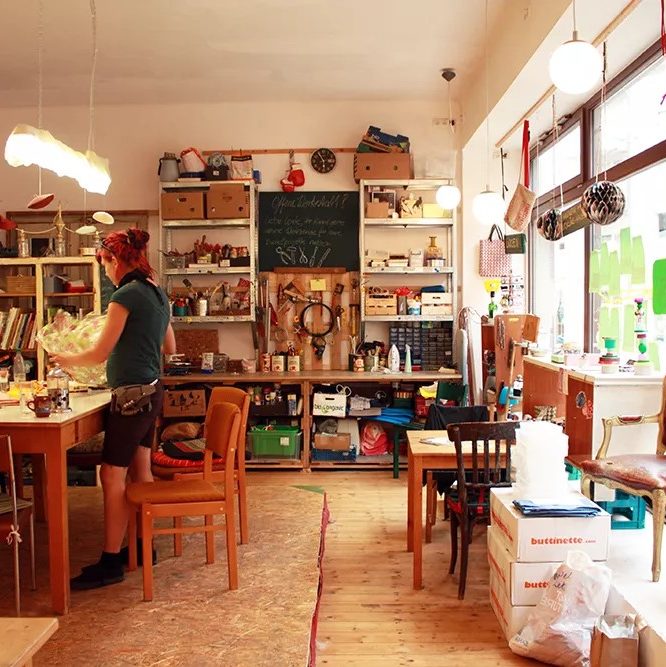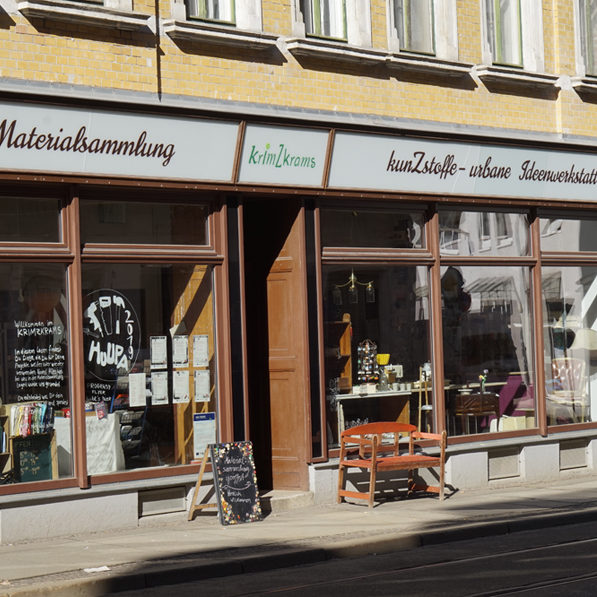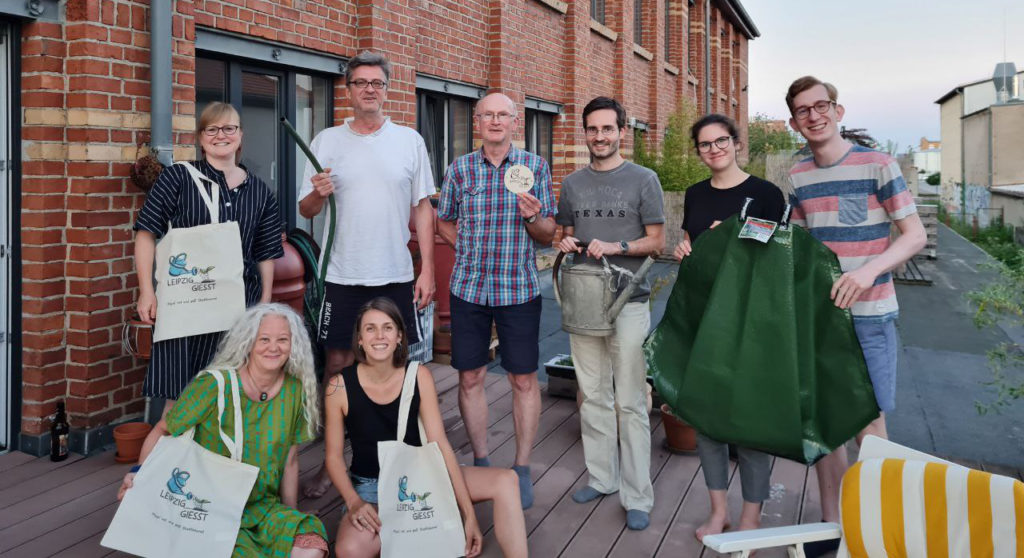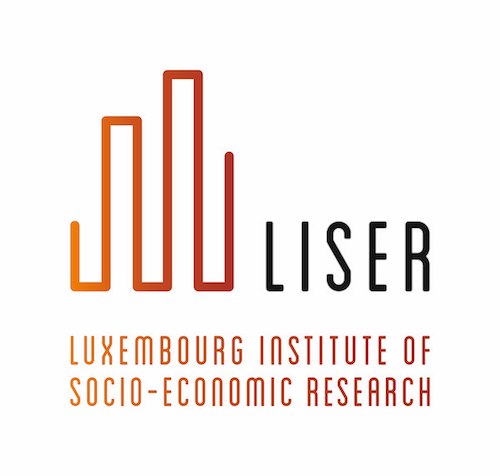Amidst the ongoing pandemic, the world’s global supply chains have halted in their tracks. After almost two years, large multi-national corporations have reconsidered cooperation and have reconfigured production to be more locally as a way to avoid waiting for goods that do not arrive in time. Taking things further, some organizations not only source and produce locally; they also run on a more democratic understanding of ownership as well as organisation of work, let alone if and how revenues are distributed internally and within the broader local community: So-called community economies already focused on ‘alternative’ ways of doing things long before the pandemic, and this post explores, what are they and what makes them so important for sustainability transitions in regions.
My research looks at the claim that community economies are as vital as multi-national corporations with a main difference being the deliberate shift in focus away from monetary return to trying to create positive effects on society and the environment. Think, for example, of a grocery shop that offers organic produce without packaging, where clients can become members of the cooperative to buy their groceries at a certain discount in return for a particular amount of time per month as help in the shop, such as this cooperative in Luxembourg. Or this repair café in Leipzig, Germany, where people come together to re-build or repair textiles or electronic devices and thereby combatting continuous overconsumption.


KrimZkrams: A registered association’s work space in Leipzig, Germany, where people donate materials for reuse. Either, people use these in upcycling sessions organized in the work space or they come here to take some of the materials that they might need in exchange for a small donation (Photos by courtesy of kunZstoffe e.V.)
Let’s start with unpacking the term first: In the English language, the word ‘community’ itself has a very positive connotation. It is especially understood to initiate a process (Walker 2011), where people voluntarily get involved and participate over something that they share common beliefs. Such a process forms social relationships among members, so that the community can be perceived as a network. This community obtains agency from its members, meaning it is seen as an actor on its own, that can carry out certain actions, that people identify with – reaching from community members being locally bound “by spatial proximity” to the locality that people live in to extending even beyond place (Bauwens et al. 2022).
In the same way, economic geographers consider the economy to be a social process itself and not, as neoliberalists claim, “a neutral object outside the social” (Zademach and Hillebrand 2013: 12f). In this vein, economy is regarded as the social process of humans interacting with each other to satisfy certain needs for material things, so a form of engagement in order to engage in a business with each other: Businesses that operate within the capitalist economy, that are based upon community may vary in “their motivations, objectives, ethical standards and surplus allocation practices” as defined by Taylor Aiken, Schulz, and Schmid (2020: 212; see also North 2016).
As such, community-based businesses can deliberately attempt to revise the idea of growth as ultimate target of their organization by accomplishing goals out of an intrinsic motivation. They prove to be successful without focusing on monetary returns in their business or daily activities. Their value lies specifically in the fact that organizations oriented towards a common good are essential to a functioning community: They can draw from local resources (notably motivated members) to work for a region, that in itself is more self-reliant, and do not externalize costs or damages that occur through their profitable activities.
Community economies are increasingly recognized to offer transformative potential for changing away from an unsustainable system of growth maximization.
Community economies are important for regional sustainability transitions since they in one way or another combat environmental or social issues that our capitalist system have led to. Most examples of community economies would be called ‘alternative’ as they do not follow the dominant capitalist logic – a focus on growth and profit maximization – but instead run on a more democratic understanding of ownership and decision-making process (Foley and Mather 2016). Overall goals relate rather to the common good, e.g. supporting the local community and their well-being, protecting the environment or embracing social inclusion, which is of specific value for a community.
The activities of community economies lie on a spectrum and can span from associations that bring people together for neighborhood projects, like this project, to simply water the trees in their district during a very hot summer so that they don’t die. A further example could be an association offering people a space where materials and resources from the community can be collected to recycle or even up-cycle, like this one. These are activities where monetary return is not expected in the first place, but rather community well-being.
Community economies can also encompass activities that might make profits, like community-based businesses. Making profits here implies covering necessary costs and using additional profits for other reasons mentioned above: Think about a local organic supermarket that still needs to make money to pay their staff, rent as well as utility bills. Same goes for a repair shop where one or two people might be working full-time to organize sessions & funding (i.e. for a space that needs to be rented), keep things in order, manage donated tools and appliances.

Stiftung “Ecken wecken” project LEIPZIG GIESST: Residents take care of watering trees in public spaces in the city to rescue them from dying due the summer heat and little rainfall (Photo by courtesy of Stiftung “Ecken wecken”)
Likewise, activities of community economies can be not monetarily rewarded, but are the foundation for other activities or jobs that they sustain without their importance being recognized (Gibson-Graham 2008): such as people in neighborhood projects that do not get paid for their work, but take responsibility for green spaces in their district and are rewarded with a livable & green city, home care for your own elderly parents, also going shopping for people in isolation during an ongoing pandemic or volunteering at a nearby refugee center.
With their diverse approaches, community economies can challenge predominant economic thinking that primarily focuses on ever-increasing monetary growth and concurrently fight problems that such thinking has generated, for instance environmental destruction and social injustice.
Community economies can be situated in between privatized activities in the market, where one pays for services, and the state’s activities, meant to take care of common goods, such as parks and other green spaces, accessible to everyone. In between, these activities fill in the gaps that exist between them and are often discussed under the term “commons”.
With their diverse approaches, community economies can challenge predominant economic thinking that primarily focuses on ever-increasing monetary growth and concurrently fight problems that such thinking has generated, for instance environmental destruction and social injustice.
They gather people that are like-minded and potentially spark other people’s interest, too, by challenging our focus on monetary growth towards a community that focuses more on sustainability and tries to combat human-induced crises like climate change. Community economies are increasingly recognized to offer transformative potential for changing away from an unsustainable system of growth maximization. The pandemic situation has undoubtedly shown the vulnerability & absurdity of our global supply chains and likewise the benefits of neighborhood stores, nurture & well-being of our communities.



Luxembourg’s first packaging free organic grocery store offering people among other things organic, seasonal and regional vegetables while avoiding packaging waste for buyers (Photos by courtesy of Société coopérative OUNI)
Activities that might not follow current market logics propose potential alternative pathways, how organizations can be beneficial for regional sustainability transitions; and even so may be preferred as they show in practice how societal well-being can be created without having to fixate on material growth (Gibson-Graham and Cameron 2007).
This is only one part of a larger field of economic activities that deserve to be highlighted, as they have always existed and partly been the bedrock of our economy today, but are not acknowledged or understood as such (Schulz and Krueger 2018), which is why this project and the following blog articles shed light on those activities and wishes to encourage & sustain such approaches.
Interested to know more about the examples of community economies mentioned in the text? Check them out at:
- Café Kaputt: https://www.cafekaputt.de/
- kunZstoffe: https://kunzstoffe.de/
- LEIPZIG GIESST: https://stiftung-ecken-wecken.de/projekte/leipzig-giesst
- OUNI: http://ouni.lu/en/
- Schwarzwurzel: https://www.schwarzwurzel.org/kontakt/
References for further reading:
Bauwens, Thomas, Daan Schraven, Emily Drewing, Jörg Radtke, Lars Holstenkamp, Boris Gotchev, and Özgür Yildiz. 2022. ‘Conceptualizing community in energy systems: A systematic review of 183 definitions’, Renewable and Sustainable Energy Reviews, 156: 111999.
Foley, Paul, and Charles Mather. 2016. ‘Making Space for Community Use Rights: Insights From “Community Economies” in Newfoundland and Labrador’, Society & Natural Resources, 29: 965-80.
Gibson-Graham, J. K. 2008. ‘Diverse economies: performative practices for ‘other worlds”, Progress in Human Geography, 32: 613-32.
Gibson-Graham, J. K., and Jenny Cameron. 2007. ‘Community Enterprises: Imagining and enacting alternatives to capitalism.’, Social Alternatives, 26: 20-25.
North, Peter. 2016. ‘The business of the Anthropocene? Substantivist and diverse economies perspectives on SME engagement in local low carbon transitions’, Progress in Human Geography, 40: 437-54.
Schulz, Christian, and Robert Krueger. 2018. ‘Diverse alternatives: empirical evidence from German-speaking scholarship’, Local Environment, 23: 675-79.
Taylor Aiken, Gerald, Christian Schulz, and Benedikt Schmid. 2020. ‘The community economies of Esch-sur-Alzette: rereading the economy of Luxembourg’, Voluntary Sector Review, 11: 211-29.
Walker, Gordon. 2011. ‘The role for ‘community’ in carbon governance’, WIREs Climate Change, 2: 777-82.
Zademach, Hans-Martin, and Sebastian Hillebrand. 2013. Alternative Economies and Spaces: New Perspectives for a Sustainable Economy (transcript Verlag: Bielefeld).

